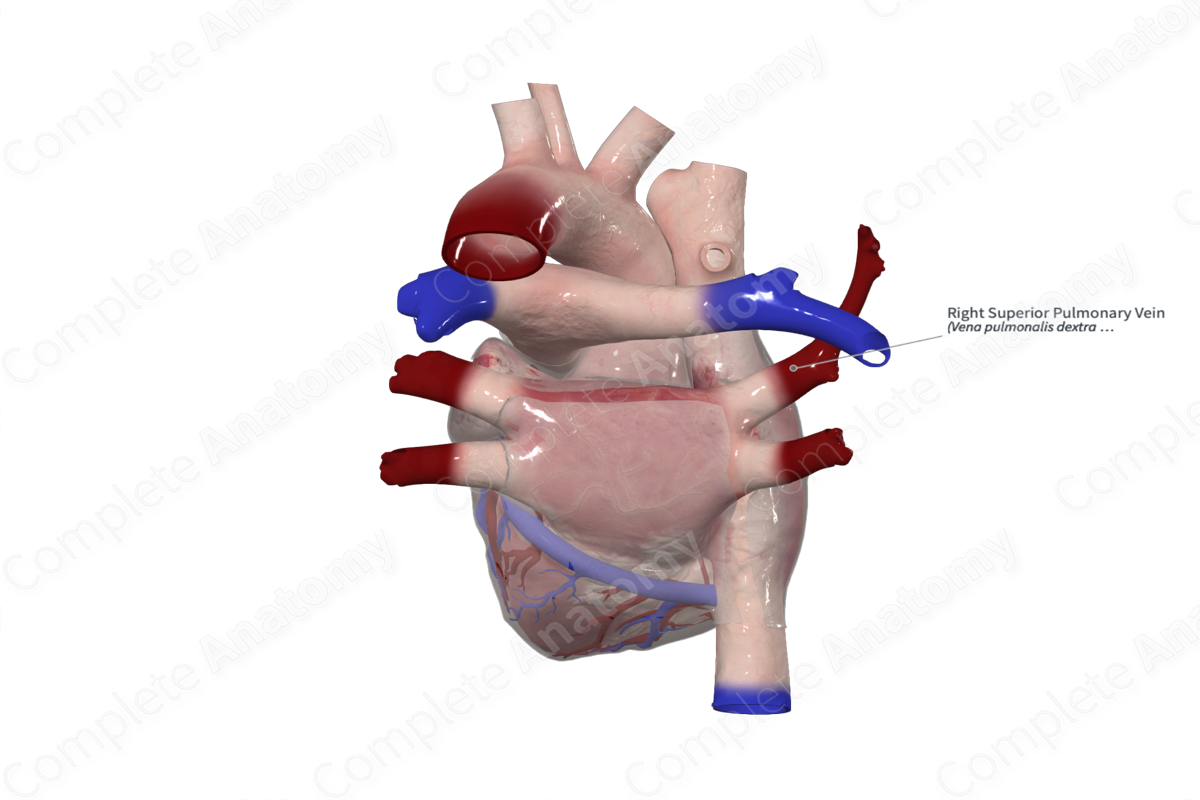
Quick Facts
Origin: Union of pulmonary segmental veins.
Course: From the right lung to the right posterosuperior aspect of the left atrium.
Tributaries: Anterior, apical, posterior, and middle lobe veins.
Drainage: Superior and middle lobe of right lung.
Origin
The right superior pulmonary vein is formed by the union of the segmental veins in the superior and middle lobes of the right lung.
Course
As the right superior pulmonary vein exits the hilum of the right lung, it sits anterior to the right main bronchus and inferior to the right pulmonary artery. It travels medially to pierce the fibrous pericardium and drains into the posterosuperior aspect of the left atrium.
Tributaries
The anterior, apical, posterior, and middle lobe veins drain into the right superior pulmonary vein.
Structures Drained
The right superior pulmonary vein is responsible for the venous drainage of oxygenated blood from the superior and middle lobes of the right lung.
List of Clinical Correlates
- Pulmonary vein atresia
- Anomalous pulmonary venous connection
Learn more about this topic from other Elsevier products
Pulmonary Vein

The pulmonary hila, or roots, are complicated structures made up of major bronchi, pulmonary arteries and veins, and hilar lymph nodes.




